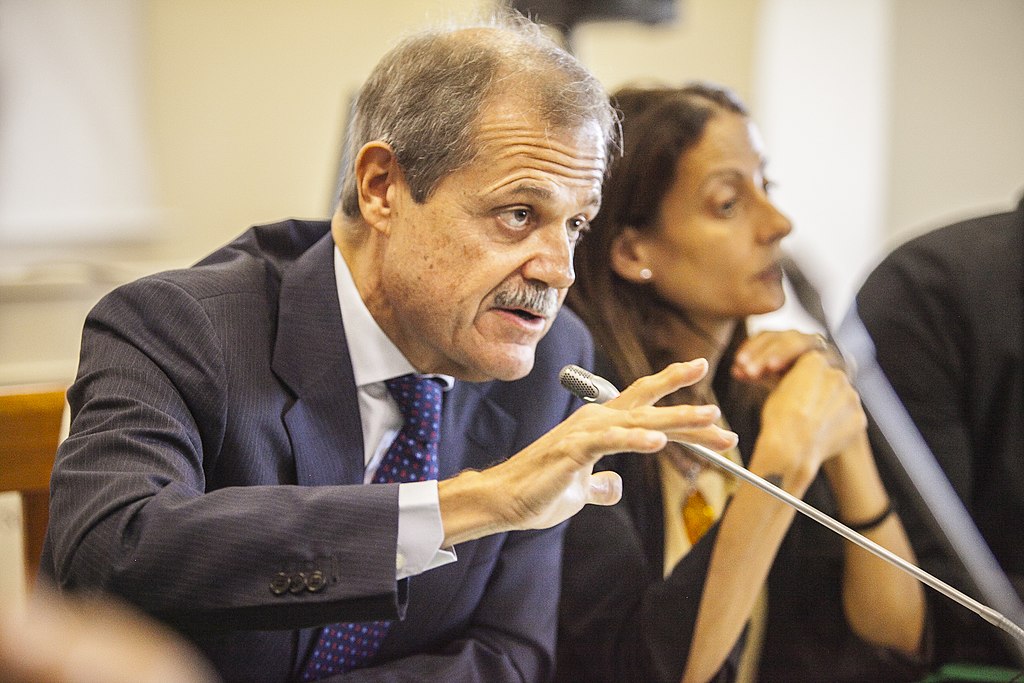Western disaster in Afghanistan. Massolo speaks (Ispi)

The modalities of the exit from Afghanistan were disastrous, such as to leave traces, both of a humanitarian nature, in the immediate future, and towards the reputation of the West. Extract from the interview of the Riformista with Ambassador Massolo (Ispi)
If there is a person who, from experience and positions held, can really help to better understand the Afghan events, this person is Ambassador Giampiero Massolo. President of Fincantieri SpA (since 2016) and President of the Institute for International Political Studies – ISPI (since 2017). Ambassador Massolo, a career diplomat, served as Director General of the Information Security Department at the Prime Minister's Office (2012-2016), as Sherpa of the Prime Minister for the G8 and G20 Summits (2008- 2009), Secretary General of the Ministry of Foreign Affairs (2007-2012). Ambassador Massolo holds courses on security and international relations issues at the School of Government of the LUISS University of Rome and at the School of International Affairs-Sciences Po in Paris. In short, an absolute authority on the matter.
In recent weeks, many have ventured to define the events in Afghanistan and the choices of the West, America in the first place: flight, surrender, betrayal or, on the opposite side, a decision that had to be taken at least 18 years earlier. Ambassador Massolo, now that the last marine has left Kabul and the US has put an end to the longest war in their history, how do you see it?
I see it this way: the war in Afghanistan was the daughter of another era. This era is over. That the Afghanistan operation should end with a withdrawal was logical and shared by all. For the withdrawal to take on the characteristics of a disaster, this was neither expected nor desirable.
Why "daughter of another era"?
There was the shock of 9/11, we had a Taliban government that hosted al-Qaeda shrines. That government had to be replaced and the terrorist sanctuaries eliminated. This operation had succeeded and even over the years these aspects had held up overall. This is not to say that the pockets of jihadist terrorism in Afghanistan had been completely eliminated, but certainly they had been greatly reduced. It was then the era of liberal interventionism, the era of safeguarding the Gulf's energy resources, and this obviously has undergone an evolution over the years. The United States felt less exposed to jihadism due to its so-called "insularity". Through shale gas they have even become net exporters of energy products, and therefore have become less dependent on Gulf oil. What had arisen on the ground was a situation in which the West was no longer advancing, what had to be done essentially had been achieved. The Taliban did not win, it was a substantial stalemate. With a "little" detail …
Which one, Ambassador Massolo?
That this stall was at the expense of the Western taxpayer. In the sense that this whole machine was a very expensive machine and that situation could not be prolonged indefinitely. Everyone was basically in agreement on the withdrawal. Regarding the times and methods, the European allies had asked and advised graduality and longer times, but the reasoning made in Washington was, in essence, we no longer make a difference anyway even if we stay a few more months and indeed we run the risk to go back to being sucked into a conflict that no one wants anymore.
And in all of this, Biden?
Well, Biden somehow found himself bound by the deals Trump had negotiated as well. Trump had negotiated a surrender, he had not negotiated on the future of Afghanistan, and therefore it was very difficult even for the president of the United States to radically change those agreements under these conditions. Having said that, the modalities of the exit were disastrous, such as to leave traces, both of a humanitarian nature, in the immediate future, both towards the reputation of the West and Western countries, and in relations between Europe and the United States.
About the latter aspect. Historically, Afghanistan has been called the "graveyard of empires". Is it also the "cemetery" of NATO?
I do not believe at all that the Western alliance is over and I do not believe at all that NATO, which is the natural center through which the relationship between the United States and Europe in matters of security is articulated, has failed. Of course, it is clear that Europeans must take note of the fact that the national security interest of the United States is shifting more and more towards another chessboard which is that of Southeast Asia, of relations with China and less and less involving the so-called Enlarged Middle East. For this very same reason, on the one hand, the United States expects Europe to play its part when European security interests are at stake, but on the other hand, Washington cannot forget or ignore that there are differences of sensitivity from a security point of view. Therefore, allied solidarity but we cannot ignore the different needs, the different sensitivities and then the different consequences that this has on the field. All this will obviously entail, on the one hand, the need for Europe to better articulate its defense, its security, its ability to stay in the scenarios on which European security depends; on the other hand it will entail a redefinition of the relationship between the two sides of the Atlantic because among allies it is also necessary to take into account the different needs of each one.
(Extract from an article published in Il Riformista ; here the complete version)
This is a machine translation from Italian language of a post published on Start Magazine at the URL https://www.startmag.it/mondo/disastro-occidente-afghanistan-intervista-giampiero-massolo/ on Sun, 05 Sep 2021 06:05:18 +0000.
